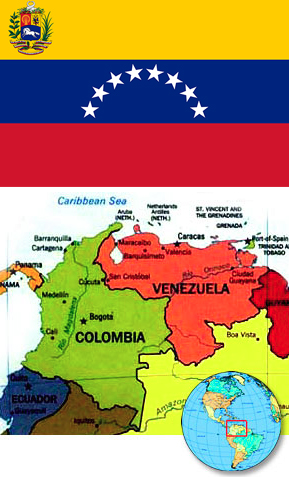By Saeed Shabazz -Staff Writer-
UNITED NATIONS (FinalCall.com) – One of Latin America’s powerful nations, oil-rich Venezuela, is now one of the 10 non-permanent members of the 15-member UN Security Council for the fourth time and there is concern in Washington, D.C.
In a letter released by U.S. Secretary of State John Kerry, a small bipartisan group of U.S. senators argued for a diplomatic effort to deny Venezuela the seat. “Venezuela’s membership on the UN Security Council constitutes a serious blow for the United States and United Nations at a time when we must collaborate to address the world’s most pressing challenges,” the letter stated.
However, according to some observers, President Barack Obama and his administration appear resigned to the prospect of working with Venezuela’s socialist government.
The UN Security Council is the main UN organ responsible for peace and international security. It can approve the use of force. Non-permanent membership is based on rotating geographical distribution. The five new members represent three regions–Africa, Asia-Pacific and Latin America.
Many analysts say Venezuela’s election shows wide support from the international community. According to the United Nations, Venezuela received 181 votes out of 191. Only one nation was against, the U.S., while 10 nations abstained.

In December, President Obama signed legislation enacting a new round of sanctions against Caracas. The legislation will allow the president to deny visas and freeze the assets of Venezuelan officials accused of violating of anti-government organizations.
Venezuelan President Nicholas Madura characterized the sanctions as insolent and imperialist, according to media reports.
One delegation happy Venezuela sits on the Security Council is the Palestinian Authority. Palestinian Authority President Mahmoud Abbas stated recently in the West Bank City of Ramallah that his group is seriously considering resubmitting their resolution demanding Israel end its West Bank occupation. The resolution failed to pass on December 30, 2014.
Mr. Abbas believes new Security Council members Malaysia and Venezuela are friendly to the Palestinian cause. In addition, say many discussing the issue in the corridors of the UN, the changes at the Security Council will not only play a part in the vote on accepting the Palestinians into the United Nations, but in other resolutions concerning Israel.
Resolutions could come that condemn settlement construction, military operations and call for UN inquiry committees to further investigate the ongoing Palestinian-Israeli conflict.
There is also talk that Venezuela would actively become involved in the debate concerning Western Sahara. In 2009, former President Hugo Chavez expressed solidarity with the people of the Sahrawi Arab Democratic Republic to obtain their independence from Morocco.
Venezuela is one of 53 nations that recognize SADR sovereignty. Morocco has occupied most of Western Sahara since 1975 following Spanish decolonization. In 1979, the UN General Assembly recognized Western Sahara’s right to independence, and the Polisario Front as the representative of the Sahrawi people.
James A. Paul, a writer and rights activist in the field of international relations and global policy, told The Final Call talk of Venezuela becoming a major force on the Security Council may be a bit premature, given the culture of that body.
The Security Council is an institution that works differently from what the public and most intellectuals may be able to comprehend, Mr. Paul noted. “Most of the time it works as a committee where the majority gets its way,” Mr. Paul said. “The council also works under the rule of consensus, so if one of the 15 objects, that’s that for the resolution.”
Mr. Paul continued saying, when it comes to resolutions, “The P-5,” permanent council members Russia, China, France, United Kingdom, and the United States, only introduce resolutions at the last minute–stripping non-permanent members of the chance to properly confer with their capitals. “And most Security Council business is conducted in privacy,” he added.
While Venezuela may be ready to take on the U.S. at the council, most nations are not ready to go to the mat against the powerful “P-1,” Mr. Paul said.
There is another factor in play, which is quietly discussed in UN corridors: How much is a seat worth on the UN Security Council? When it comes to foreign aid, or what some might call bribery, temporary members may find their countries’ U.S. aid increased by 59 percent and its UN aid by 8 percent, according to a study by the Harvard Business School.
“And when a nation goes against the wishes of the U.S. they very well may find that that aid gets cut,” Mr. Paul said.












